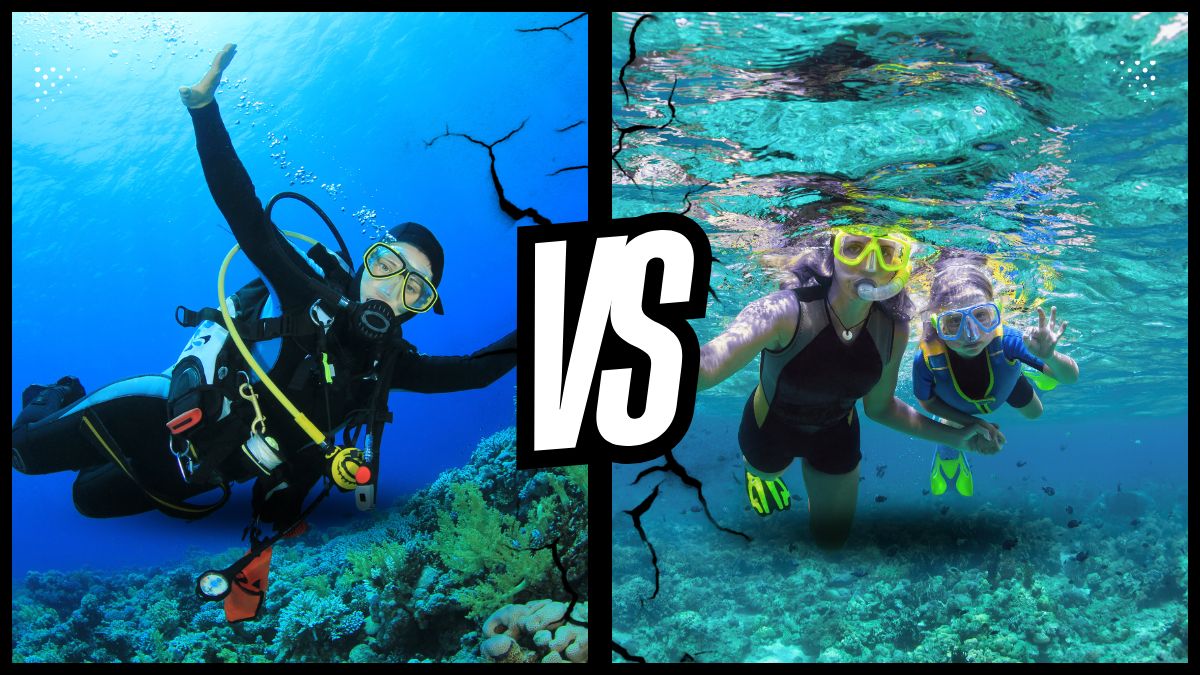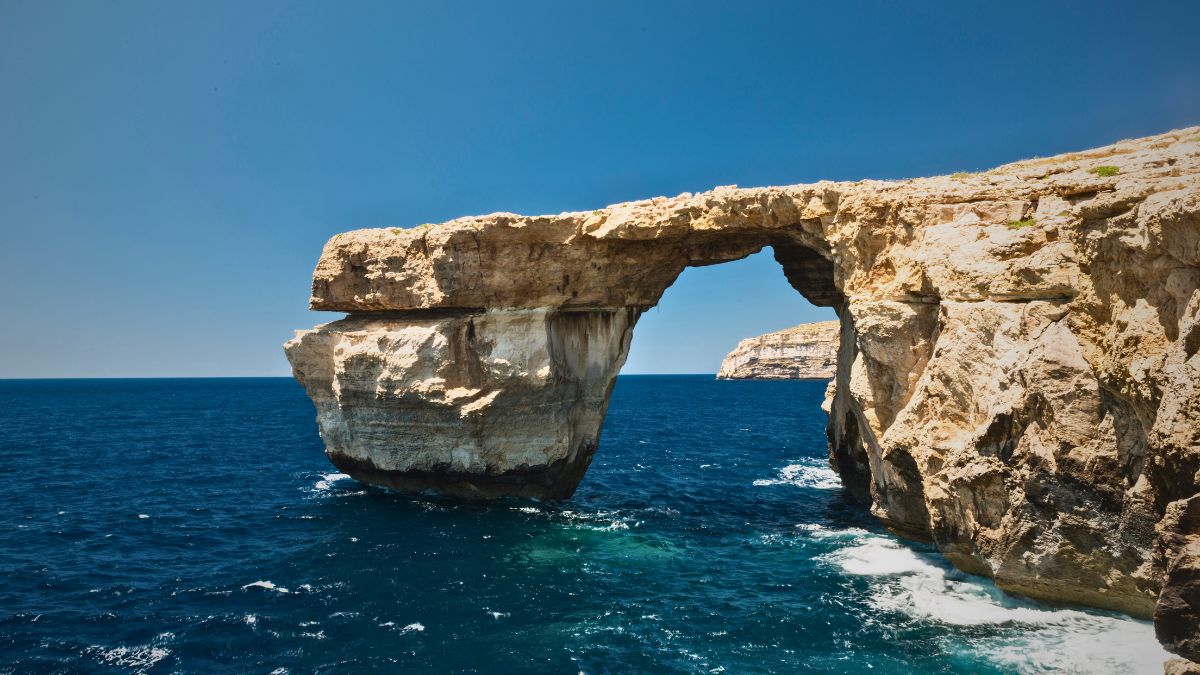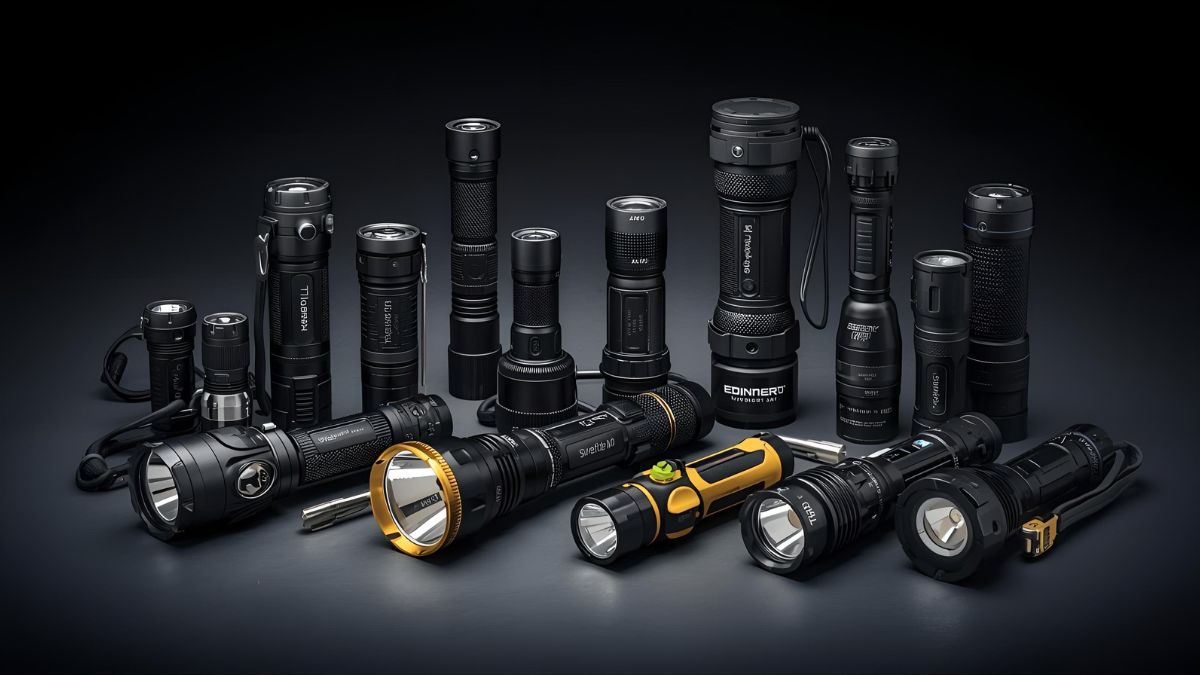After years of working in the diving industry, I can easily answer the question: “Is diving safe?” My answer is yes. But only if you follow the rules and dive within your limits.
I’ve seen hundreds of divers enter the water over my career. Some treat safety as a priority. Others think they know better than their training. The difference between these two groups often determines who has amazing underwater experiences and who ends up in dangerous situations.
Let me share what I’ve learned about diving safety. This isn’t corporate talk or textbook theory. This is real experience from someone who’s been underwater for thousands of dives and has taught hundreds of students.
How Safe Is Scuba Diving? The Real Statistics
Let’s start with facts, not fears.
Scuba diving is safer than most people think. The statistics might surprise you.
What Are the Actual Numbers?
According to Divers Alert Network (DAN), there were only 71 diver fatalities in the United States in 2017. With approximately 2.85 million active divers in the US, that’s about 2 deaths per 100,000 participants.
Compare that to other popular activities:
- Horseback riding: 128 deaths per 100,000 participants
- Driving a car: 16 deaths per 100,000 people
- Jogging: 13 deaths per 100,000 people
Diving is statistically safer than many activities we do without thinking twice.
Did you know? Scuba diving has a lower fatality rate than horseback riding, driving a car, or even jogging. When done properly with good training, it’s statistically one of the safest adventure sports you can do.
How Many People Get Injured While Diving?
The US Consumer Product Safety Commission tracks emergency room visits for various sports. Their data shows that scuba diving results in only 1,569 ER admissions annually.
Let’s put that in perspective:
- Swimming: 101,822 annual ER visits
- Fishing: 65,728 annual ER visits
- Golf: 36,616 annual ER visits
- Bowling: 15,055 annual ER visits
- Scuba diving: 1,569 annual ER visits
You’re more likely to get injured bowling than scuba diving.
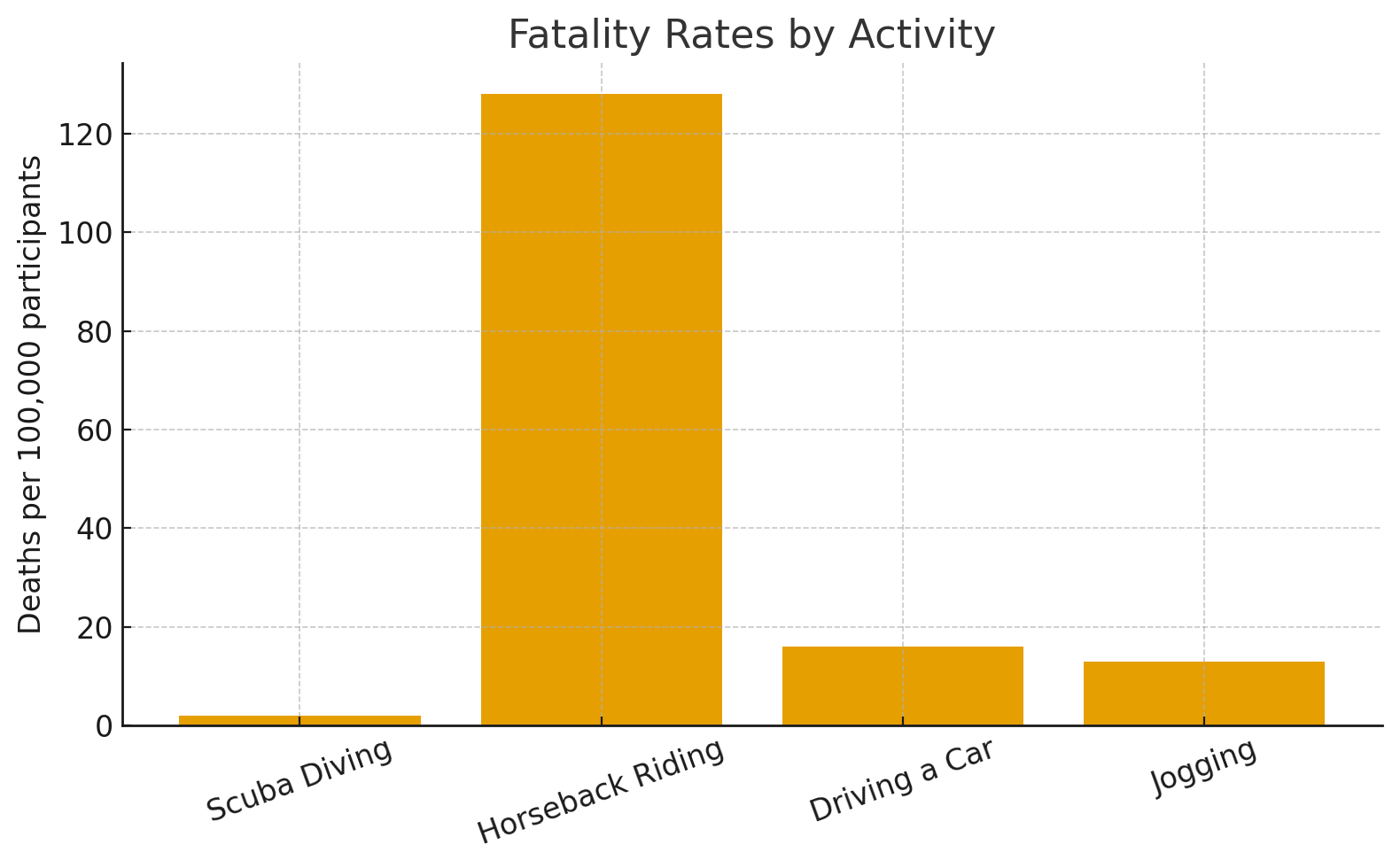
What Are the Most Common Diving Injuries?
Here’s something that surprises most people. The three most common medical issues associated with scuba diving are completely preventable:
- Sunburn
- Seasickness
- Dehydration
That’s it. Those are your biggest risks on most diving trips.
Serious injuries do happen, but they’re rare. And almost always preventable with proper training and safe practices.
Fun fact: The majority of diving incidents occur within the first 20 dives of a diver’s career. This is why continued training and building experience gradually are so crucial for long-term safety.
What Are the Main Risks in Scuba Diving?
Let’s talk honestly about real risks. I won’t sugarcoat things.
Diving does have dangers. But understanding these risks is the first step to avoiding them.
What Is Decompression Sickness (The Bends)?
Decompression sickness, or DCS, is what most people worry about. We call it “the bends.”
Here’s what happens. When you dive, your body absorbs nitrogen from the compressed air you breathe. The deeper you go, the more nitrogen your tissues absorb.
If you come up too fast, that nitrogen forms bubbles in your blood and tissues. Those bubbles can cause serious problems. Joint pain, skin rashes, dizziness, paralysis, or worse.
How Do You Prevent Decompression Sickness?
Prevention is actually simple:
- Follow your dive computer or dive tables religiously
- Ascend slowly (no faster than 30 feet per minute)
- Make a safety stop at 15 feet for 3-5 minutes
- Don’t dive deeper than your training level
- Stay hydrated before and after dives
- Avoid alcohol before diving
- Get enough rest between dives
I’ve been diving for over 15 years. I’ve never had DCS. Why? Because I follow these rules every single time. No exceptions. No shortcuts.
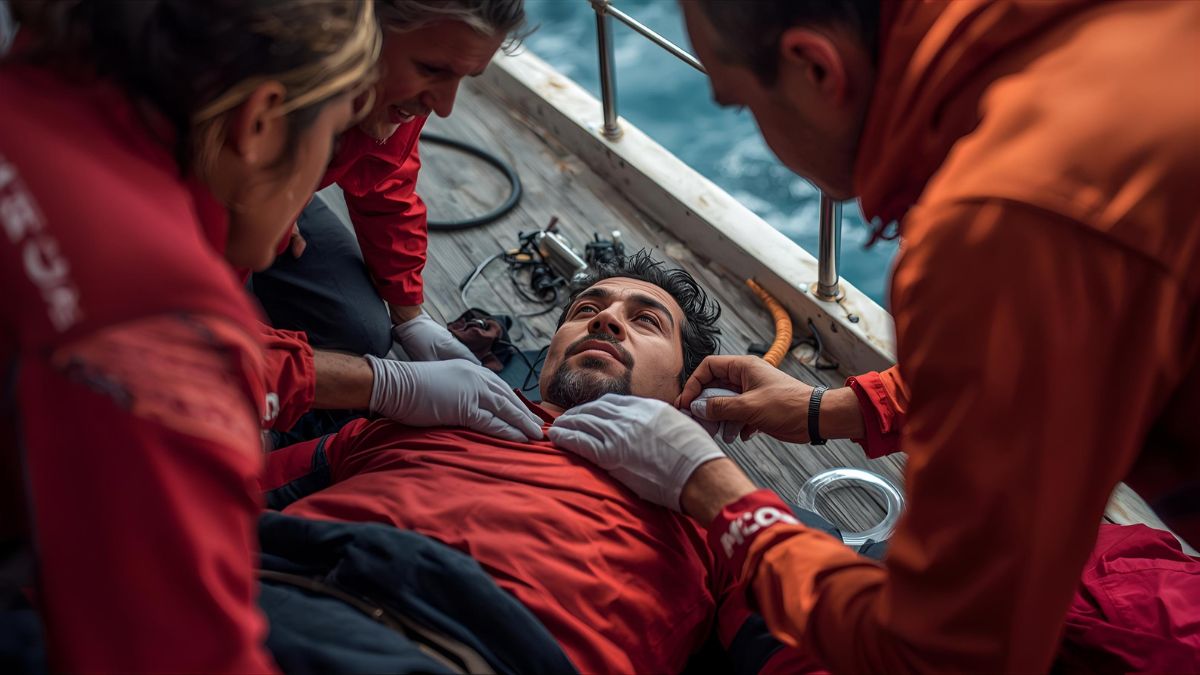
Can You Drown While Scuba Diving?
Yes. Drowning is the most common cause of scuba diving deaths.
That sounds scary. But let me explain why it happens and how to prevent it.
What Causes Drowning in Scuba Diving?
Divers drown for several reasons:
- Running out of air
- Panic underwater
- Lack of proper training
- Health problems causing unconsciousness
- Equipment failure
How Do You Prevent Drowning While Diving?
With proper training, most of these risks disappear.
Never run out of air. Check your pressure gauge constantly. Surface with at least 500 PSI remaining. Always.
Control panic through training. Your Open Water course teaches you what to do in emergencies. Practice those skills until they’re automatic.
Use the buddy system. Always dive with a partner. If you run out of air, your buddy has an extra regulator you can breathe from.
Stay physically fit. Get medical clearance before diving. Be honest on your medical questionnaire.
Maintain your equipment. Check everything before every dive.
I apologize in advance if this sounds harsh. But I find it amusing when people pose as great experts after completing an advanced course and 30 dives.
I have a few thousand dives and years as a dive instructor. I know there’s still a lot I need to learn.
Experience matters. Respect your training level.
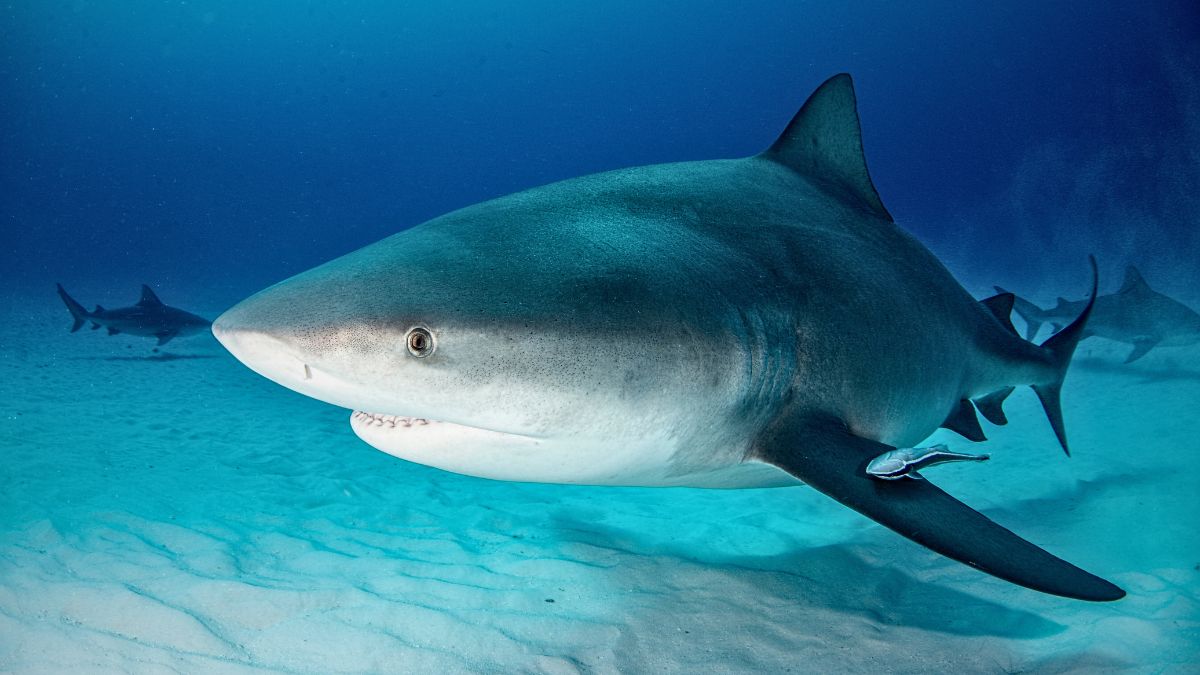
What About Sharks and Marine Life?
Let’s address the elephant in the room. Or should I say, the shark in the water?
Hollywood has done sharks a terrible disservice. Jaws is fiction, not documentary.
Are Sharks Really Dangerous to Divers?
Here’s the truth: Every year, dogs, snakes, crocodiles, and even hippos kill more people than sharks do. In Australia, horses cause an average of 10 deaths per year. Sharks cause only 2 deaths annually.
Most divers love sharks. I certainly do. These animals are magnificent and mostly misunderstood. Shark attacks on scuba divers are incredibly rare. When they do happen, it’s usually because the shark felt threatened or confused.
What Marine Life Should You Actually Worry About?
The real risks come from smaller creatures:
- Lionfish with venomous spines
- Stonefish hiding on the reef
- Fire coral that burns on contact
- Sea urchins with sharp spines
- Jellyfish with stinging tentacles
How Do You Stay Safe Around Marine Life?
The solution is simple: Look, but don’t touch.
Maintain good buoyancy control. Don’t stand on the reef. Don’t grab rocks or coral. Keep your hands to yourself underwater.
Most marine life injuries happen because divers touch things they shouldn’t. Respect the underwater environment and it will respect you back.
Did you know? About 50% of scuba diving deaths are associated with pre-existing heart conditions. This is why medical screening before diving is so crucial, especially for divers over 50 years old.
What Other Risks Should You Know About?
Arterial Air Embolism
This happens when air bubbles enter your arteries. Usually from holding your breath while ascending.
Prevention: Never hold your breath underwater. Breathe continuously. Always.
Nitrogen Narcosis
At deeper depths, nitrogen can have an intoxicating effect. It’s like being drunk underwater.
Divers call it “rapture of the deep.”
Prevention: Stay within your depth limits. Get advanced training before going deeper.
Equipment Failure
Regulators malfunction. Masks leak. BCDs fail.
Prevention: Regular maintenance. Pre-dive checks. Dive with quality equipment.
Why Following the Rules Is Key to Diving Safety
I’ve met many divers over my career with a very high sense of safety. Unfortunately, sometimes this confidence is completely unfounded.
What Happens When Divers Get Overconfident?
This apparent sense of safety underwater leads to lowered watchfulness. It’s human nature.
Once we consider something relatively safe, adherence to safety rules goes out the window. We start making exceptions. “What can happen? I’ve had more than 50 dives. I can do this.”
That’s when the risk increases dramatically. That’s when accidents happen.
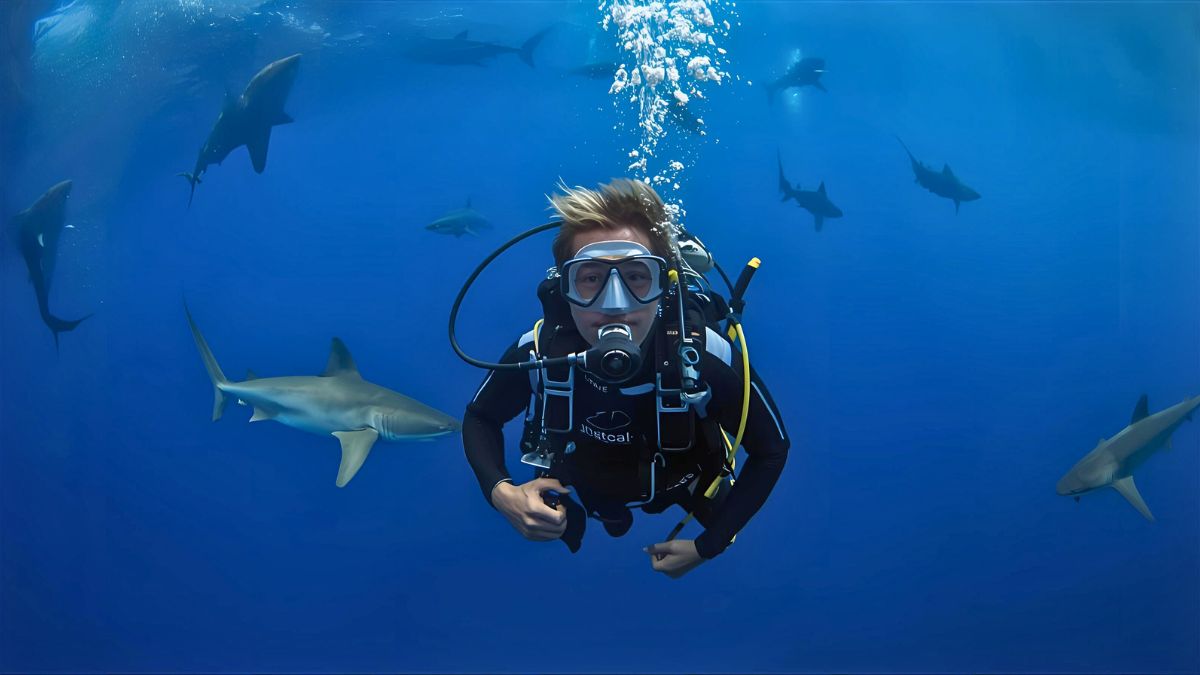
Why Do Experienced Divers Have Accidents?
The most dangerous diver isn’t always the beginner. Sometimes it’s the diver with 100 dives who thinks they know everything.
They skip the pre-dive check. They go deeper than planned. They dive in conditions beyond their training.
I call it the “I’m immortal” phase.
How Do You Avoid the Overconfidence Trap?
Acknowledge Your Limitations
With my few thousand dives and many years as an instructor, I know there’s still a lot to learn. Every dive teaches something new.
If I’m still learning, so are you.
Follow Procedures Every Time
Pre-dive checks aren’t optional. Safety stops aren’t suggestions. Depth limits aren’t guidelines.
They’re rules. Follow them. Every single dive.
Stay Humble Underwater
The ocean is stronger than you. Nature is unpredictable. Equipment can fail. Bodies can react unexpectedly.
Respect these facts. They might save your life someday.
How Does Proper Training Increase Safety in Diving?
Training is the foundation of diving safety. Period.
But not just any training. Proper, thorough, ongoing training.
Why Is Initial Certification So Important?
Your Open Water course teaches you the basics. How to breathe underwater. How to control buoyancy.
What to do in emergencies.
This isn’t just paperwork. It’s survival skills.
What Does Good Training Give You?
A solid foundation of diving knowledge. Skills that become automatic. Confidence that comes from competence.
Just taking a diving course won’t make you an expert overnight. But it will give you the tools to grow safely.
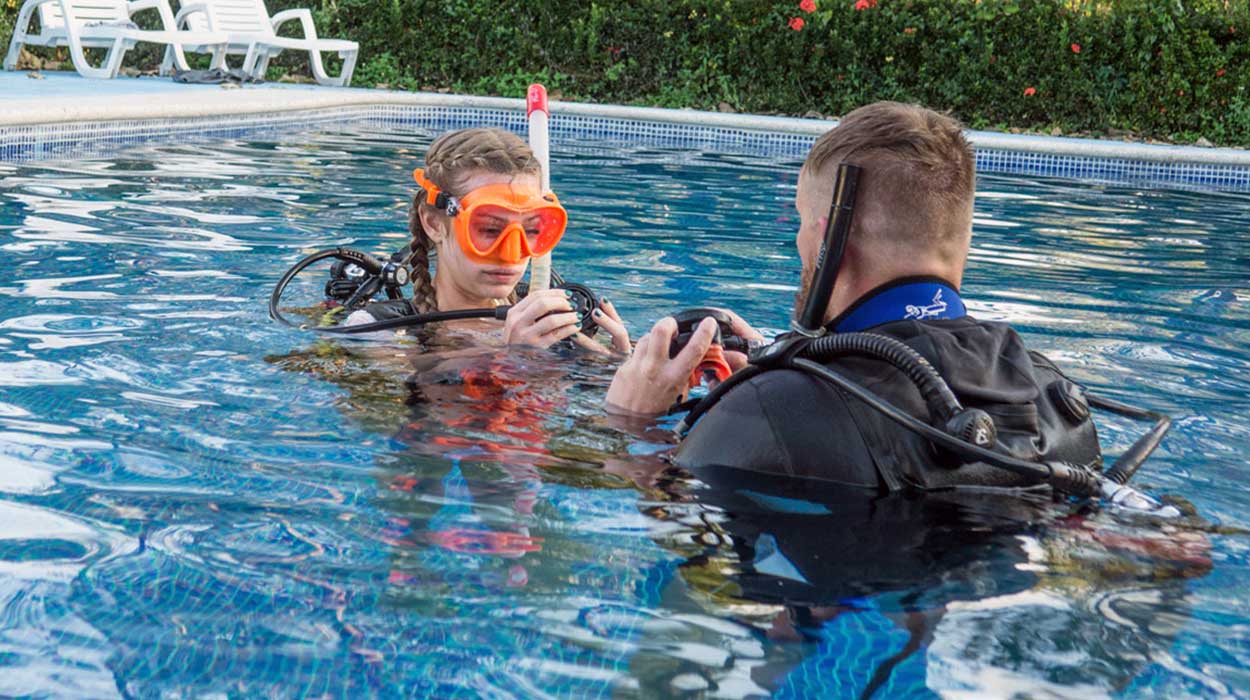
Why Should You Continue Training After Open Water?
Your education shouldn’t stop at Open Water certification. There’s so much more to learn.
Advanced courses teach you:
- Deep diving techniques
- Night diving procedures
- Navigation underwater
- Wreck diving safety
- Photography skills
- Environmental awareness
Each course makes you a safer, more capable diver.
What Is the Most Important Advanced Course for Safety?
Nothing raises a diver’s awareness and capabilities more than a well-executed PADI Rescue Diver course.
This course teaches you:
- How to prevent accidents
- How to recognize stress in yourself and others
- How to respond to emergencies
- How to perform rescues
- How to think clearly under pressure
If you haven’t taken it yet, there’s nothing to consider. Just do it.
What Happens When You Dive Beyond Your Limits?
Let me give you a real example from my experience.
Can I Do a Night Dive Without Certification?
Clients often ask if they can dive with me at night. My first question: Do you have a completed night diving course?
Usually the answer is no.
Why Can’t I Night Dive Without the Course?
If you don’t have night diving certification, I won’t take you diving after sunset. Even if you’re my best friend.
I simply know the risks. Night diving is fundamentally different from day diving. The underwater world changes completely.
Without proper training, you’re a potential threat to your own safety. And possibly to mine.
What If I Dive Beyond My Training Anyway?
Of course, no one will physically stop you. You can go on a night dive without certification. You can try technical diving without training.
You can do whatever you want. It’s your life.
But remember this: If something happens during that dive, no diving insurance will cover your recovery costs. Not even DAN.
Why? Because you dived inconsistently with your training.
What Does the Law Say About Diving Risks?
There’s a principle in Roman law that still applies today: volenti non fit injuria. It means “to a willing person, injury is not done.”
If you knowingly and voluntarily expose yourself to danger, you can’t claim compensation for the harm that results.
This formed the legal basis for the doctrine of assumption of risk. You accept the risks when you dive. You’re responsible for your choices.
How Do You Avoid Diving Beyond Your Limits?
Know Your Certification Limits
Open Water: 60 feet maximum depth. Advanced Open Water: 100 feet. Deep Diver: 130 feet.
These aren’t suggestions. They’re the limits of what your training prepared you for.
Be Honest About Your Experience
Don’t pose as someone with more experience than you have. It impresses no one and endangers everyone.
Ask for Advice
If you’re unsure about a dive, ask an instructor. Ask a more experienced colleague.
There are no stupid questions in diving. Only stupid decisions.
Fun fact: The term “rapture of the deep” for nitrogen narcosis was coined by Jacques Cousteau, who described it as feeling drunk and euphoric at depth. This is why deep diving requires special training and a clear head.
Who Is Responsible for Your Diving Safety?
This is a question I get asked frequently. The answer might surprise some people.
What Is the Diver’s Responsibility?
You are primarily responsible for your own safety underwater. Not the dive center. Not your buddy.
You.
What Should You Do Before Every Dive?
Be honest about your skills. Don’t lie about your experience level. Don’t hide medical conditions.
Check your equipment. Inspect everything. Test your regulator. Check your BCD. Verify your air supply.
Plan your dive. Know the maximum depth. Know the dive time. Know the exit point.
Dive your plan. Don’t change things underwater. Stick to what you agreed on the surface.
What Skills Must You Maintain?
If you haven’t dived in six months, take a refresher course. Skills fade. Memory fades.
Confidence can turn into overconfidence.
Keep your training current. Practice basic skills regularly. Stay sharp.
What Is the Dive Center’s Responsibility?
Dive centers have serious responsibilities too. They should do everything to make your dives safe and enjoyable.
What Should a Good Dive Center Provide?
Well-maintained equipment. Regulators serviced regularly. Tanks inspected and filled properly. BCDs in good condition.
Proper briefings. Information about the dive site. Potential hazards. Emergency procedures. Entry and exit points.
Qualified staff. Certified instructors and divemasters. People with real experience, not just fresh certifications.
Safety procedures. Emergency oxygen. First aid kits. Emergency action plans. Communication equipment.
Proper documentation. Liability releases you must read and sign. Medical questionnaires. Dive logs.
What Documentation Will You Need to Sign?
Medical questionnaire. Be honest. Your life might depend on it.
Liability waiver. This explains the risks. Read it. Understand it.
Dive roster. So we know who’s on the boat and in the water.
When Is the Dive Center Not Responsible?
If you lie on your medical form, we can’t protect you. If you dive beyond your certification, we can’t be held responsible.
If you ignore the dive briefing, the consequences are yours.
The dive center provides safe conditions, proper equipment, and qualified supervision. But they can’t force you to make smart decisions.
That’s on you.
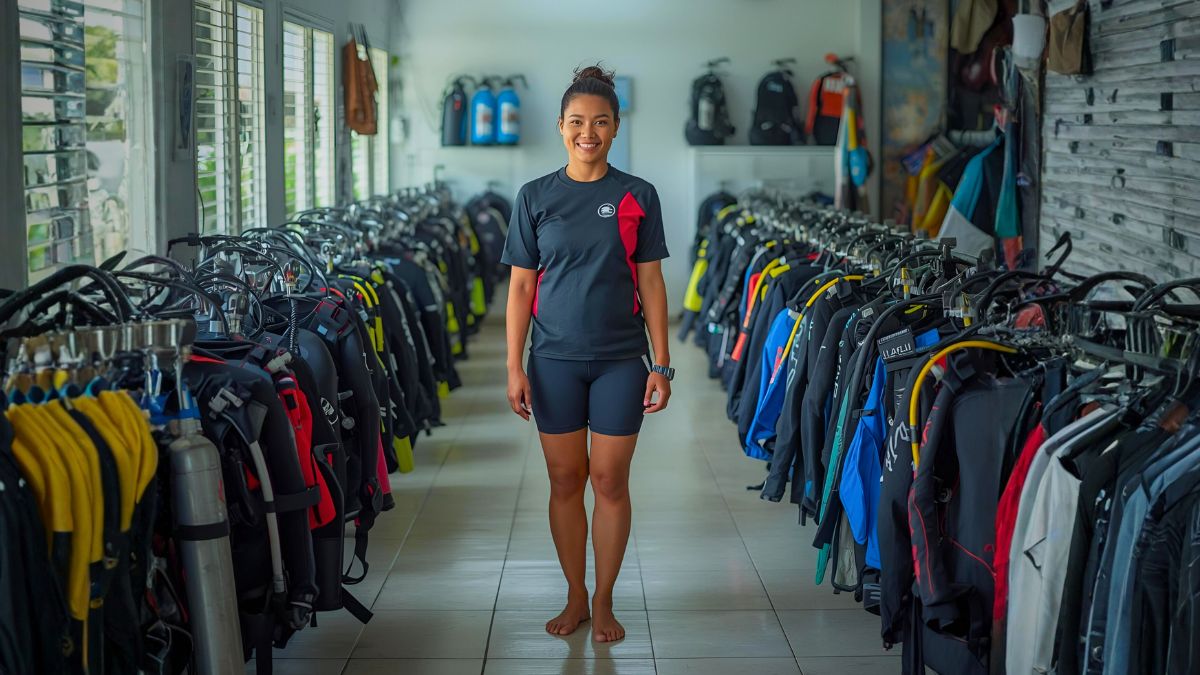
How Can You Make Diving Safer? Practical Tips
Let me share the most important safety practices I’ve learned over thousands of dives.
What Should You Do Before Getting in the Water?
Get Properly Certified
Don’t skip steps. Don’t rush through courses. Take your time and learn thoroughly.
Quality training from a reputable organization like PADI is non-negotiable.
Complete Your Medical Questionnaire Honestly
Lung problems? Heart conditions? Ear issues? Tell your instructor.
We’re not trying to exclude you. We’re trying to keep you safe.
Some conditions just require a doctor’s clearance. Others might mean diving isn’t right for you.
Better to know on land than discover at 60 feet underwater.
Check Your Equipment Thoroughly
Every. Single. Time.
- Test your regulator. Breathe from it.
- Check your BCD. Inflate and deflate it.
- Inspect your mask. Look for cracks.
- Verify your weights. Are they secure?
- Check your computer. Is the battery good?
- Confirm your air. Is the tank full and valve open?
What Should You Do During the Dive?
Never Dive Alone
The buddy system isn’t just a nice idea. It’s essential safety protocol.
Your buddy is your backup air supply. Your emergency assistance. Your second set of eyes.
Choose your buddy carefully. Make sure you trust them.
Monitor Your Air Constantly
Check your pressure gauge every few minutes. Don’t wait until you’re low.
Surface with at least 500 PSI remaining. Always. This is your safety margin.
Stay Within Your Limits
Know your depth limit. Know your bottom time. Know your comfort zone.
Don’t let anyone pressure you to go deeper or stay longer.
Control Your Buoyancy
Good buoyancy control prevents many accidents. You won’t crash into coral. You won’t kick up silt. You won’t ascend too fast.
Practice this skill constantly. It’s one of the most important.
Breathe Continuously
Never hold your breath underwater. Ever.
Breathe slowly, deeply, and continuously.
What Should You Do After the Dive?
Stay Hydrated
Drink water. Not alcohol. Dehydration increases your risk of DCS.
Rest Between Dives
Don’t rush into your next dive. Take a proper surface interval.
Let your body off-gas nitrogen. Relax and enjoy the surface.
Log Your Dive
Record your maximum depth. Bottom time. Conditions. What you saw.
This information might be important later. Plus, it’s fun to remember your dives.
Wait Before Flying
Don’t fly for at least 18-24 hours after your last dive. Preferably longer.
Flying too soon after diving dramatically increases your DCS risk.
Did you know? Your body continues off-gassing nitrogen for up to 24 hours after a dive. This is why many dive professionals recommend waiting a full day before flying, even though the minimum is technically 18 hours.
How Do You Build a Safety-First Mindset?
Start Right from the Beginning
If you follow diving standards from your very first dive, you’ll develop the right attitude. Safety becomes automatic, not something you think about.
Question Everything
If something doesn’t feel right, speak up. If conditions look dangerous, don’t dive. If equipment seems faulty, don’t use it.
Trust your instincts.
Learn from Others’ Mistakes
Read accident reports. Study what went wrong. Learn from other people’s errors so you don’t repeat them.
DAN publishes excellent case studies. Read them.
Take a Rescue Diver Course
I’ll say it again because it’s that important. The Rescue Diver course changes how you think about diving.
It teaches situational awareness. Problem recognition. Emergency response. Self-rescue and buddy rescue.
These skills might save your life. Or someone else’s life.
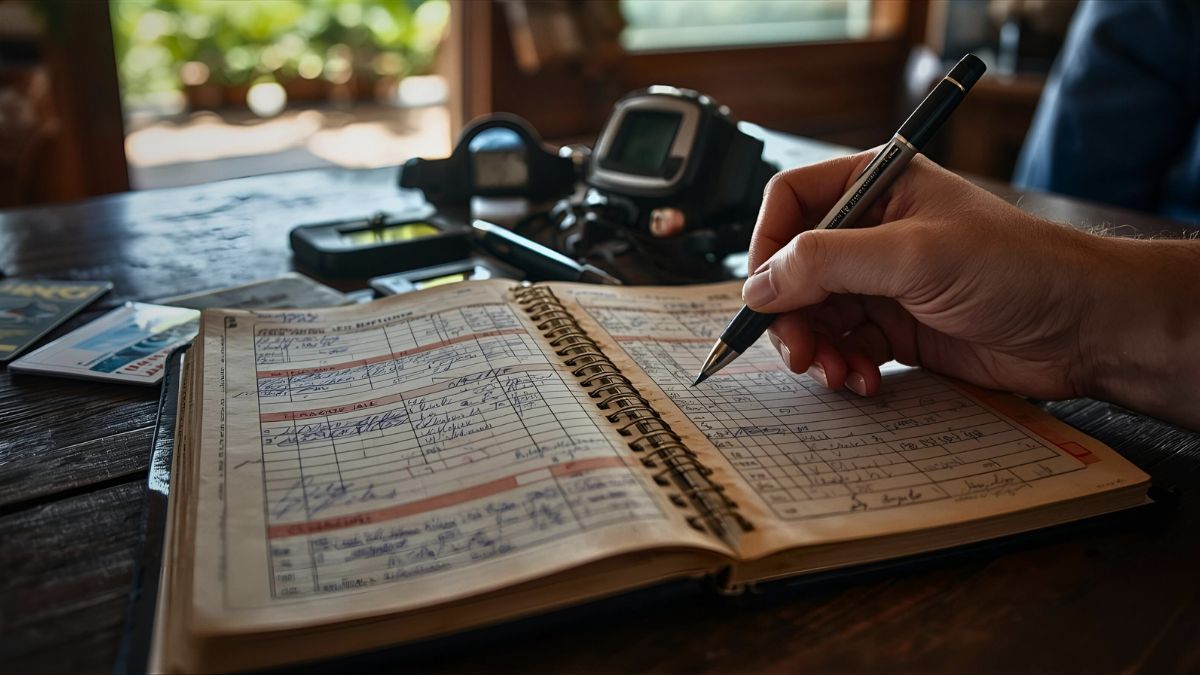
Is Diving Safe? Final Thoughts
So, is diving safe? Yes. With proper training, good equipment, and smart decisions, diving is very safe.
But it’s never risk-free. The ocean is a powerful environment. Equipment can fail. Bodies can react unexpectedly.
Mistakes have consequences.
What Have We Learned About Diving Safety?
The statistics show diving is safer than many everyday activities. Proper training dramatically reduces risks. Following rules and procedures prevents most accidents.
Your safety is primarily your responsibility. Dive centers can provide safe conditions, but they can’t make decisions for you.
Awareness of dangers and personal limitations is crucial. Expanding knowledge through continued training keeps you safe.
Proper equipment maintenance prevents failures. Dive planning reduces surprises.
Frequently Asked Questions
Is scuba diving safe for beginners?
Yes, scuba diving is safe for beginners when they complete proper PADI certification training. The Open Water course teaches essential safety skills in controlled environments before ocean dives. Beginners who follow their training and dive within their limits have excellent safety records.
How dangerous is scuba diving compared to other sports?
Scuba diving is statistically safer than many common activities. With only 2 fatalities per 100,000 participants annually, diving is safer than horseback riding, driving, jogging, and even bowling in terms of injuries requiring emergency care.
What is the most dangerous part of scuba diving?
The most dangerous element is human error, not the underwater environment. Diving beyond training limits, skipping safety checks, or ignoring dive plans causes most accidents. Proper training and following procedures eliminate most risks.
Can you die from scuba diving?
Yes, though fatalities are rare with proper training. Most diving deaths involve pre-existing health conditions, especially heart disease in divers over 50. Honest medical disclosure and appropriate physical fitness dramatically reduce fatal accident risks.
Do I need insurance to scuba dive?
While not legally required, dive insurance through DAN (Divers Alert Network) is highly recommended. Standard health insurance typically doesn’t cover hyperbaric chamber treatment for decompression sickness. DAN insurance covers diving-specific medical emergencies and evacuation costs.
Sources used in writing this blog
This article is based on guidelines and research from the following authoritative sources:
- Divers Alert Network (DAN) – Guidelines for Flying After Diving
- PADI – Open Water Diver Manual and Safety Guidelines
- Risk factors for dive injury: a survey study
- Peer-reviewed research on hydration and decompression sickness prevention
- Research Diving Program
- The epidemiology of injury in scuba diving

